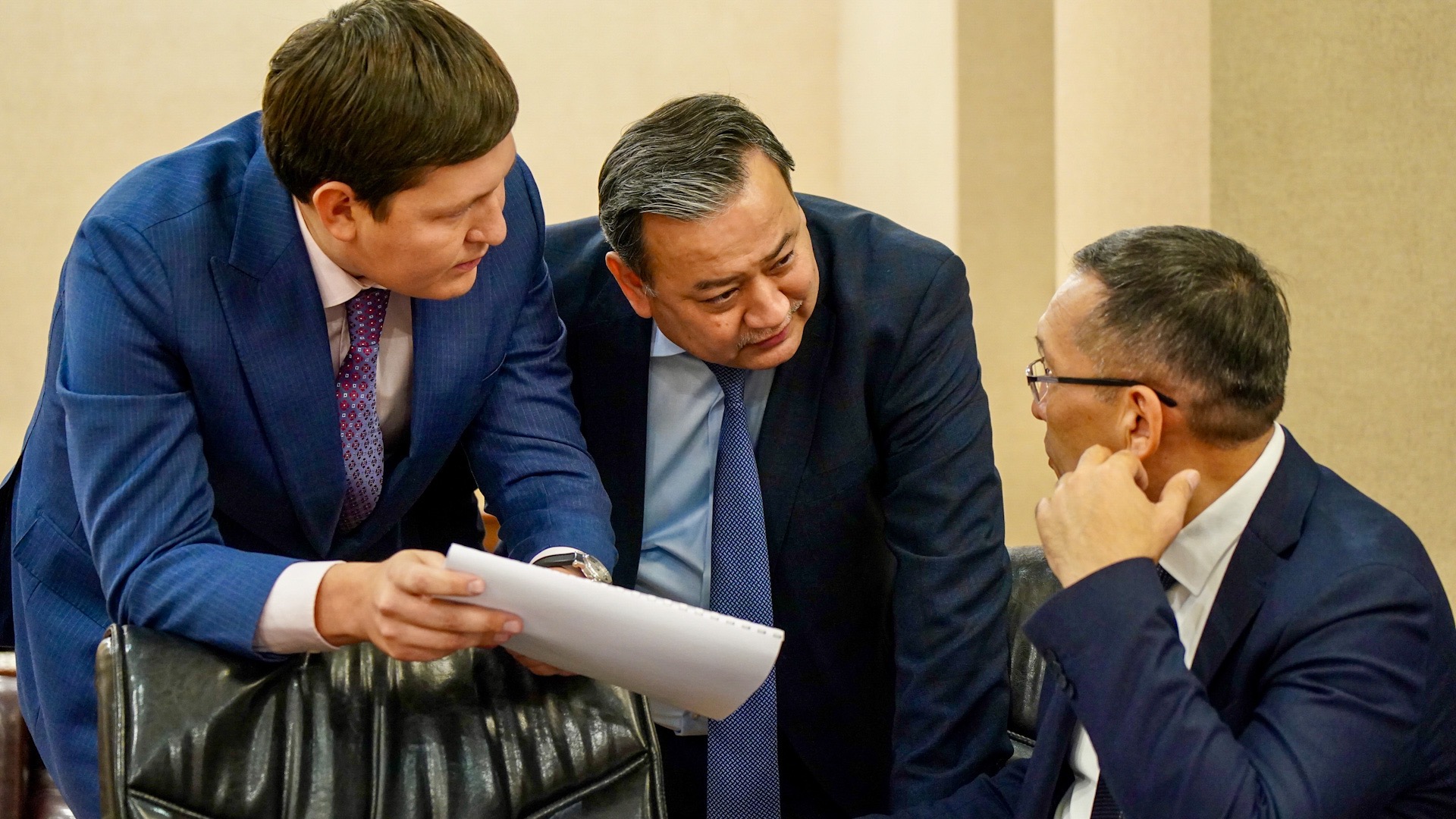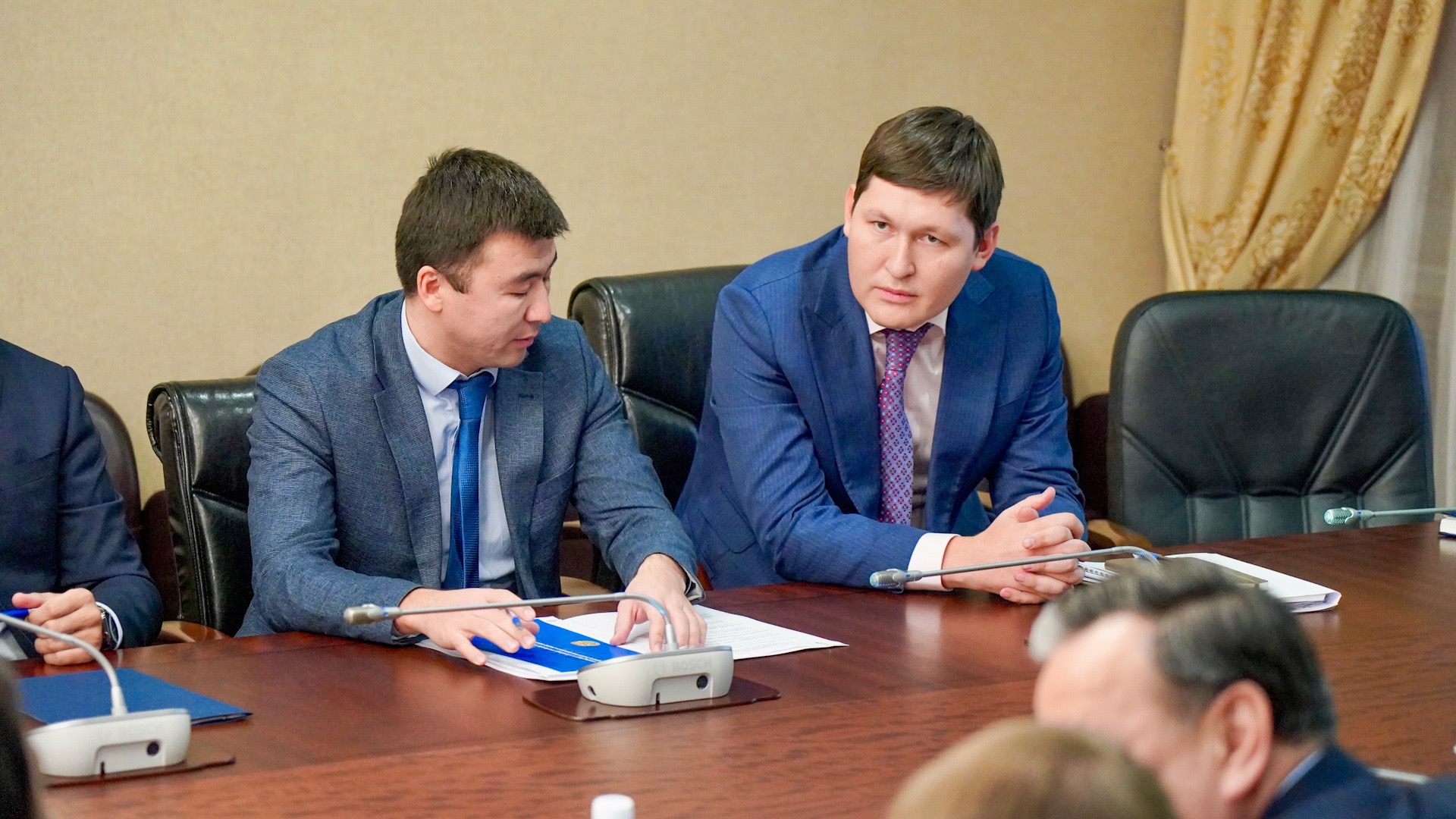In a pivotal meeting held at the Government headquarters under the leadership of Deputy Prime Minister Serik Zhumangarin, the expansion of the international North-South transport corridor took center stage. The IX meeting of the operational working group on the development of cross-border hubs delved into the progress of various projects aimed at enhancing transportation infrastructure, an official information source of the Prime Minister of Kazakhstan reported.

Bauyrzhan Urynbasarov, the managing director of NC KTZ, revealed that a comprehensive analysis, in collaboration with Russian Railways, had been conducted on the effectiveness of interstate checkpoints. The focus was on implementing measures to enhance their efficiency. A strategic plan for the expansion of the North-South corridor was outlined, involving a phased approach to increase cargo capacity.
From 2023 to 2025, the initial phase will witness the extension of tracks at the Iletsk-1 station and the construction of second tracks with automatic blocking on the Orsk-Kandyagash section, covering 213 km. This move is projected to double the number of trains received from the Russian Federation, increasing from 7 to 15 pairs per day.

The subsequent stage aims to construct 4 sidings on the Makat–Shubarkudyk section and 3 on the Mangyshlak–Uzen section, all equipped with automatic blocking. Future plans include the addition of second tracks on multiple sections, such as Iletsk-1–Aktobe (195 km), Kandyagash–Kigash (808 km), Shalkar–Beineu (496 km), Beineu-Mangystau-Aktau Port, Kuryk-Port (490 km), and Uzen–Bolashak (147 km). These developments are anticipated to boost cargo transportation volume along the North-South corridor from 6 to an impressive 20mn tons per year.

Simultaneously, progress has commenced at the Caspian hub, focusing on the establishment of a container hub within the Aktau Seaport SEZ. A designated land plot of 19 hectares has been reserved for this purpose, with ongoing efforts to install necessary infrastructure and develop design and estimate documentation for an additional power plant. Deputy Prime Minister Serik Zhumangarin emphasized the urgency of presenting a comprehensive draft concept for the Caspian hub's development, a vital link in alternative trade routes, by the year's end.
Kazakhstan's flagship cross-border hub, the Khorgos node in the Zhetisu region, was also discussed. The complex of infrastructure facilities, located on the Kazakh-Chinese border, aims to integrate all elements to boost export volumes, transit, and industrial cooperation. As of now, 48 participants are registered in the SEZ, with 15 enterprises in operation, creating 1,600 jobs. Plans include commissioning 6 additional projects worth KZT 1.7bn ($3.6mn) by year-end, with the total income of the Khorgos ICBC reaching KZT 1.5bn ($3.2mn). Between April and November, the Khorgos International Center facilitated the transportation of 8,000 tons of cargo. The cumulative investments in the project have now reached KZT 141bn ($304mn).

The meeting concluded with directives from Deputy Prime Minister Zhumangarin to expedite the completion of infrastructure for the industrial zone "Cross-Border Trade Center (CBTC) Eurasia" and the creation of an Industrial shopping and logistics complex (ISLC) in West Kazakhstan and Zhambyl regions. Additionally, the management company for the industrial zone "Alatau" is to be determined on a competitive basis, and the concept of the regional industrial zone "International Center for Industrial Cooperation (ICIC)-Central Asia" is to be approved by the Akimat of the Turkestan region.
Follow Daryo's official Instagram and Twitter pages to keep current on world news.
Comments (0)